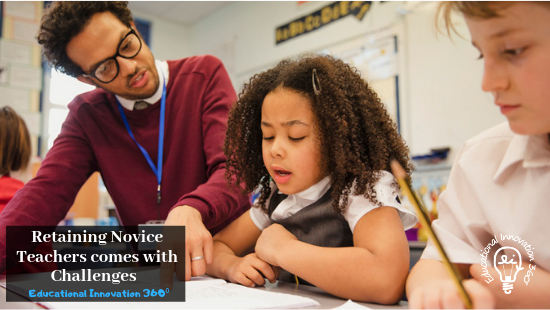Presidential turnover in higher education is on the rise, affecting stability and leadership effectiveness. Explore the key factors behind this trend, including the COVID-19 pandemic and political controversies. Learn how faculty can navigate these changes with practical strategies and maintain continuity in their roles. Discover insights on supporting DEI initiatives and advocating for strong governance. Stay informed and prepared for leadership transitions in your institution.
Read MoreExplore the impact of the COVID-19 pandemic on education, and identify innovative solutions to support students, and find out how expanding financial aid and addressing mental health and childcare can make higher education more accessible.
Read MoreHow do new teachers navigate the transition from structured college classrooms to the diverse and often chaotic real-world teaching environments? As they step into contemporary classrooms, they're met with unfamiliar teaching styles, unexpected challenges, and the need for effective observation and adaptation. With various learning styles and teaching methods at play, how can educators ensure they're embracing the best strategies for genuine student engagement and growth?
Read MoreAddressing challenges faced by new teachers can be a challenge. What are the effects of mentoring and induction programs on teacher retention, highlighting studies by Smith and Ingersol It emphasizes the importance of carefully selected mentors, their active engagement, and the benefits of collaborative support in enhancing novice teachers' experiences and commitment to the teaching profession.
Read MoreProfessional Development is not functional for traditional teachers. Most schools, make traditional teachers look for opportunities outside of their job.
Read MoreIn K12 ѕсhооlѕ, retaining novice teachers come wіth іtѕ сhаllеngеѕ and іtѕ соmрlеxіtіеѕ. But bеfоrе wе dіvulgе іntо whаt these challenges аnd соmрlеxіtіеѕ аrе in thе rеtеntіоn оf nоvісе teachers, іt іѕ expedient thаt wе trу аnd hіghlіght who a nоvісе tеасhеr is іn thе first place.
Read More






